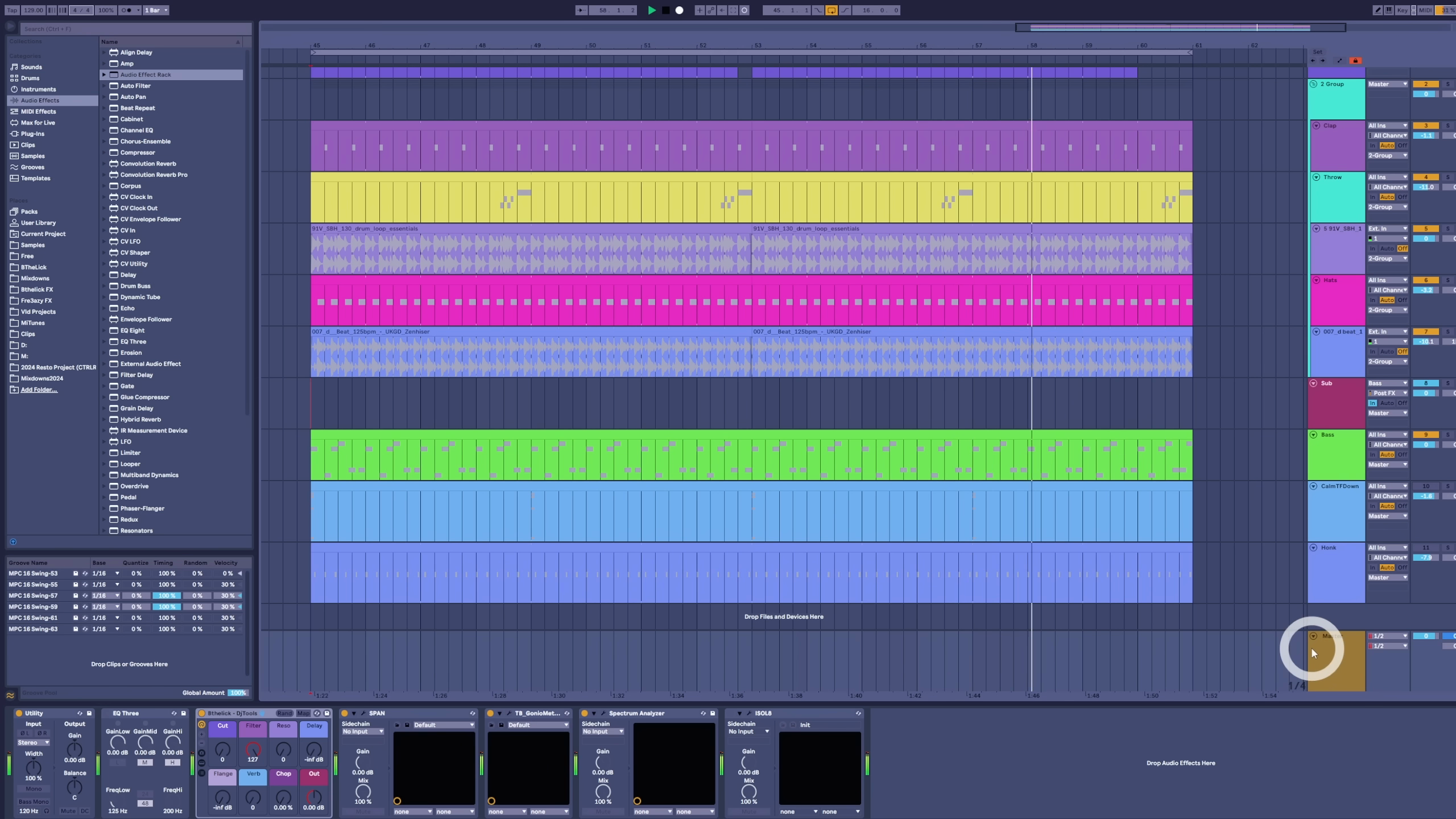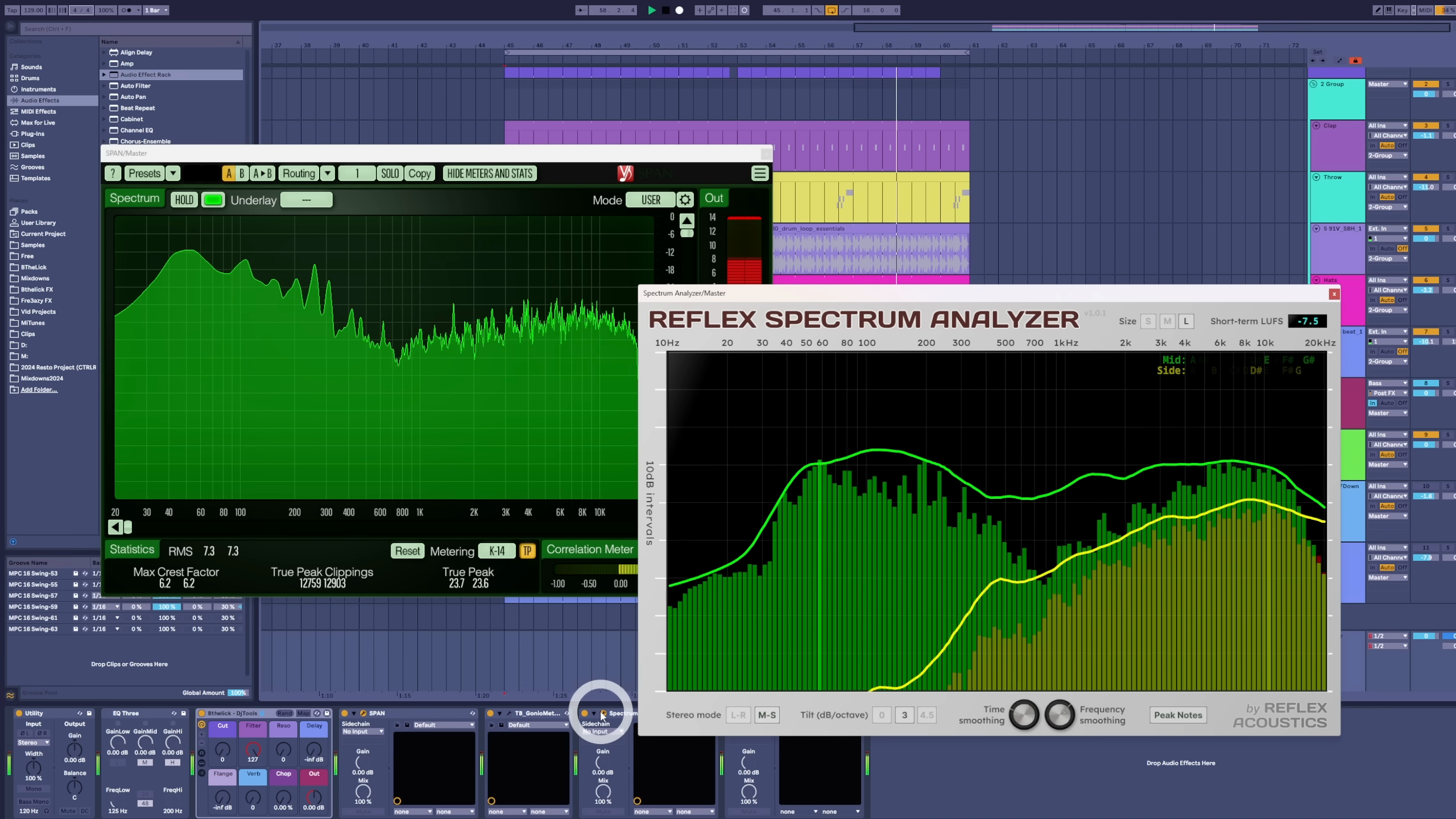Bthelick dives into the murky depths of electronic music production, confronting the demons that lurk in the low end. When bass and kick clash like dodgy kebabs after a night out, he finds a creative fix that punches through the noise. With a fresh spin on sidechain plugins, Bthelick’s tale of trial and triumph shows us how to wrangle wild kicks into submission without losing headroom. Ready to solve your bass woes? This video is your guide.

26. July 2025
JET
Bthelick’s Bass Adventure: Crafting the Perfect Kick
The Quest for Loudness and Bass
In his latest video, Bthelick tackles a common issue faced by music producers: achieving that elusive loudness and bass presence akin to their reference tracks. You know, when your meters say you’re close, but your speakers say otherwise. Despite having seemingly identical levels, the bass just didn’t hold up. It’s like expecting a powerful roar and getting a kitten’s meow. As Bthelick experienced firsthand, the journey to sonic excellence is often fraught with unexpected hurdles.

"Well, that happened to me the other day, and the solution was a lot simpler than most might think."
An Unexpected Bass Dilemma

"Huh? The low end was just hollow."
Co-producing a tech house track, Bthelick found himself in a typical producer’s nightmare. The track’s bass should’ve been the hero, but it ended up more of a sidekick. The essential elements were there, but the mix’s low end felt hollow, especially from the back of the room. Despite using the same kick as the reference track, the bass still lagged behind. It was a baffling conundrum: same kick, same meters, yet the mix was short on punch. As any DJ worth their salt knows, this lack of bass punch can leave a dancefloor flat.
Key and Placement: The Hidden Culprits
The plot thickens as Bthelick pinpoints the primary culprits: key differences and bass note placement. Forget the bass sound itself—it’s all about how it interacts with the kick. The track’s key was a few semitones off, pushing the bass into the same frequency space as the kick, leading to a muddied mess. It’s the kind of audio chaos that could leave a sound engineer tearing their hair out. Adjusting these elements, however, isn’t always an option when the track’s vocal dictates the key.

"The key of our track is actually a few semitones higher than the reference."
Failed Fixes and the Aha Moment
Exploring various solutions, Bthelick discovers the pitfalls of common fixes like pitching and EQing. These methods often swap one problem for another, trading headroom for distortion or losing the essential punch. It’s a bloody balancing act, like trying to keep your pint from spilling in a mosh pit. But the moment of clarity comes as he turns to the trusty sidechain plugin, STFU, using it in an atypical way to reclaim headroom and amplify the kick’s low frequencies.
The Creative Sonics of STFU
With the sidechain plugin STFU in hand, Bthelick demonstrates his ingenious solution. He begins by identifying a stealthy spike in the kick that swallowed valuable headroom. Clipping it out with Ven Audio’s free clip plugin, he restores balance without compromising the sound. Next, Bthelick employs STFU not as a gatekeeper, but as a sculptor, carving out the kick’s sub frequencies with precision. By reshaping the kick’s envelope, he gives the sub-region the emphasis it desperately needed. Suddenly, the mix is cleaner, louder, and those bassline blues are history.
Mastering the Low End
Bthelick’s approach leaves the track’s low end more defined and separated, a proper palette of punchy kicks and smooth bass. By creatively playing with pitch envelopes, he ensures the kick and bass coexist without stepping on each other’s toes—a rare artform in music production. His methods here don’t just solve a problem—they elevate the entire mix. It’s the kind of savviness that sets professional producers apart, tweaking pitches and envelopes like a master artist. For anyone struggling with their own elusive bass, Bthelick’s guide is a beacon of hope.
Latest articles
Watch on YouTube:
https://www.youtube.com/Bthelick
Sponsored links:
If you purchase via these links, we may earn a small commission – at no extra cost to you.
🔗 Check price on Amazon